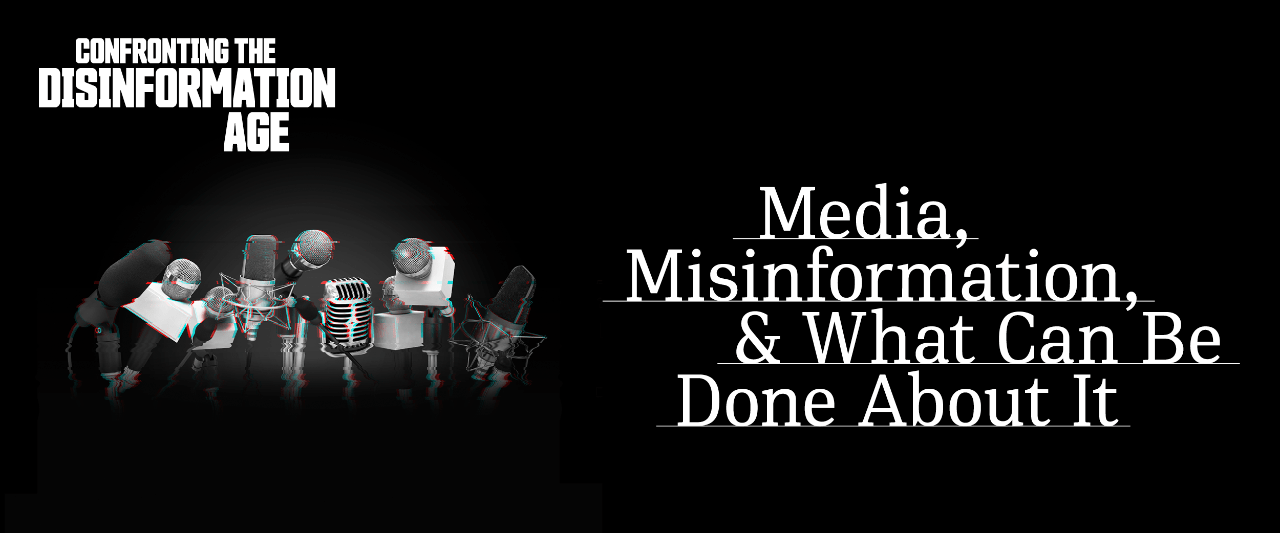
This is from our weekly Discourse newsletter. Make sure to share it and subscribe here.
Millennials — that avocado-toast eating generation everyone loves to hate — have been accused of being lazy, entitled, indulgent and overly sensitive. But here’s one accusation that’s new to me: we are murderers.
An incomplete list of things millennials stand accused of killing: marriage, beer, movies, manners, bar soap, vacations, sex, diamonds, handshakes… you get the point.
But when it comes to journalism, millennials should be a source of hope. Here’s why:

-
-
- Despite much noise being made over our short attention spans, research shows that millennials prefer in-depth news content more than their older counterparts. Sure, cat videos are a thing. But we also want to engage with longform written, podcast and interactive journalism.
- As the Spotify and Netflix generation, millennials are more likely than other demographics to pay for journalism. With advertising tanking as a source of revenue for news publishers, audience revenue is increasingly important if we want journalism to exist. And millennials are fueling growth in audience revenue around the world.
- To convince millennials to pay for their journalism, news outlets need to produce high quality, accurate and compelling content, according to the Tow Center. Millennials’ purchasing decisions are driven by values, and they expect news outlets to earn their trust with transparency and authenticity.
- As the most diverse generation in history, millennials will force newsrooms to address their diversity problem. They are more socially engaged with their communities than other demographics and they use news media to “become an informed citizen.” They want journalism that represents their local community.
-
Canadian news media have struggled to resonate with millennials and other young audiences. One reason: advertisers incentivize media to serve the affluent, and millennials are economically disempowered compared to older demographics.
But things are changing fast. Millennials are now the largest age group in the Canadian workplace, according to one 2016 report. Plus, we are increasingly showing up to vote. In the 2015 federal election, millennial voter turnout spiked 20 per cent, marking the first time our generation changed a federal election outcome. As we emerge as a political force, news media will increasingly react.
Millennials want something very different from their news: digital media that offers depth, authenticity, transparency, diversity and solutions. Rather than killing journalism, our influence will power a positive and much-needed transformation of news.
Did you hear?
About two-thirds of The Discourse audience are millennials and they skew female. We’re always checking our assumptions about what stories they want by asking them to weigh in. Here are some recent local stories about the coverage they care about:
-
-
- Last week, members of Urban Nation voted for reporters to investigate the state of reconciliation measures in urban institutions in the Lower Mainland. This choice surprised reporter Wawmeesh Hamilton. “On the face of it, the state of reconciliation in urban institutions seemed a nebulous subject,” he wrote.
But on reflection, he realized that these institutions are ever-present in the lives of urban Indigenous people. “It’s been four years since the Truth and Reconciliation Commission’s calls to action were announced, which included calls to public institutions, including municipal governments, colleges, universities and other civic institutions. How well are these institutions answering the calls?”
- Last week, members of Urban Nation voted for reporters to investigate the state of reconciliation measures in urban institutions in the Lower Mainland. This choice surprised reporter Wawmeesh Hamilton. “On the face of it, the state of reconciliation in urban institutions seemed a nebulous subject,” he wrote.
-

-
-
- After Cowichan Valley residents asked reporter Jacqueline Ronson to probe mental health issues in the region, she learned from residents that she needed to go beyond documenting examples of extreme suffering and interrogate everyday struggles that affect many. In a moving and vulnerable newsletter this week, Jacqueline shared how economic pressures contributed to her own mental health challenges, particularly after she lost her mother to suicide three years ago. “My story is unique but not extraordinary,” she writes. “All kinds of signs point to life in Cowichan being more difficult, from the rising proportion of income spent on housing, to the percentage of the population with low incomes.”
-
-
-
- Scarborough residents asked reporter Aparita Bhandari to cover public transportation. Her coverage is helping residents there make sense of the implications for Scarborough of Ontario Premier Doug Ford’s transit policy. “I heard the frustrations expressed by Scarborough residents who were tired of hearing the same old subway versus LRT debate, of feeling like pawns in a political game,” she writes. “It seems like Scarborough is being forgotten,” they said.
-
Join us

On Monday, April 15, we’re partnering with SFU Public Square to host a workshop entitled Media, Misinformation, and What Can Be Done About It. We’re inviting journalists, academics, students, stakeholders and citizens to come together to dig into the real-life impacts of misinformation leading up to Canada’s 2019 federal election. Together we’ll brainstorm practical ways to serve the public and depolarize the discourse. If you want to join us, click here and register. There are only five tickets left.
Shout outs
In last week’s newsletter, I made the business case for asking our audience what to investigate next. Here’s what you told me:
“Social media pirates like Google and Facebook are commodifying everyone’s identity online. The only way to get news that isn’t driven by their algorithms or the bot armies that try to game them is to subscribe like in the print era.” – Ian
“The only concern I would have is that it will skew a certain way politically and a broader range of topics may be left out. For example if the Fox News audience was voting then global warming would never he covered except in derision. Some stories may be important to cover even if they aren’t popular.” – Susan
How we can be responsive to community demand for information without creating political echo chambers? I’d love to hear your feedback on how we can engage a wide variety of people in our journalism so we’re relevant to readers regardless of their age, politics or background. [end]
Thanks to community members like you, we’ve been able to grow our team to address gaps in media coverage. Like what you’re reading? Please forward to friend or two, and encourage them to subscribe.


